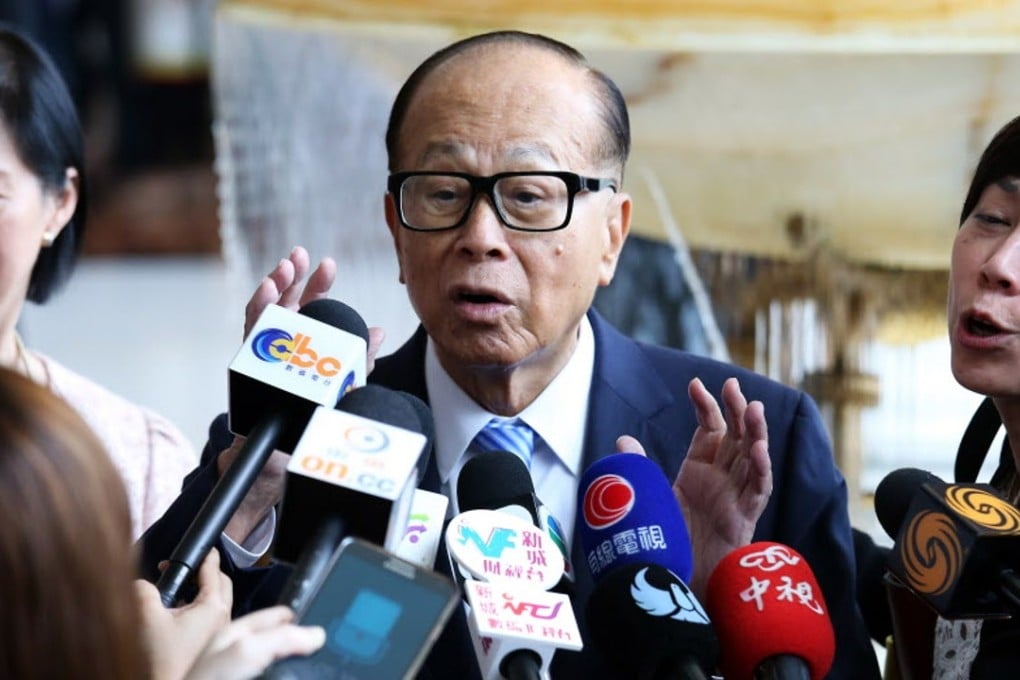New | Tough decision for minority shareholders of Li Ka-shing-controlled CKI and Power Assets
Minority shareholders of Power Assets face tough choice between a merger with parent Cheung Kong Infrastructure (CKI) or reject the proposal and take the risk it may see its share price languish if no new acquisitions materialise

Minority shareholders of Power Assets will be subjected to a hard choice between a possibly value-creating merger with parent Cheung Kong Infrastructure (CKI) at a less than desirable shares exchange ratio, or reject the proposal and take the risk the firm may continue to sit on its huge cash pile and see its share price languish if no new acquisitions materialise.
Either way, billionaire tycoon Li Ka-shing and his family, who control both companies under his flagship CK Hutchison Holdings, will be in the drivers’ seat when it comes to Power Assets’ future direction. The vote is scheduled for Tuesday.
CKI early September proposed to swap all the Power Assets shares it did not already own, with new shares to be issued by CKI. The proposed swap ratio was 1.04 CKI shares for each Power Assets share.
The ratio was raised to 1.066 about a month later as investors complained the offer was near the low end of the around 1.05 to 1.35 range since December 2013 when Power Assets announced it is selling its stake in its Hong Kong power business and separately list on the stock market.
The proposed special dividend - essentially financed by Power Assets’ cash pile and payable to all CKI shareholders post-merger - has also been raised to HK$7.5 a share from HK$5.
After multiple stake disposals in the Hong Kong business, Power Assets has amassed a cash pile of HK$68 billion at the end of June. It said it would pursue acquisitions in the global energy industry.